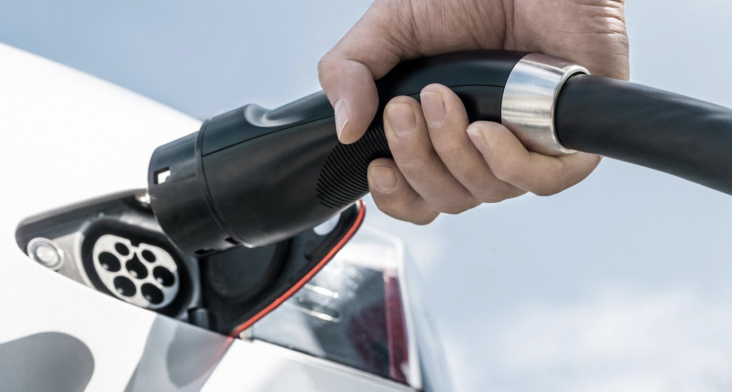Nunnally, Bentonville auto dealer, embracing evolution toward electric vehicles
by February 25, 2021 12:06 pm 1,464 views

Like so many automakers, General Motors is investing heavily in electrification. That means the auto dealers who sell their cars must make investments, too.
“We’ve got to sell what General Motors builds,” Gan Nunnally said. “If GM moves this way, we’ve got to move this way with ’em.”
Nunnally, the general manager of family-owned George Nunnally Chevrolet in Bentonville, was referencing GM’s announcement on Jan. 28 that would qualify as a “whoa” moment — the largest U.S. automaker plans to stop making gasoline and diesel vehicles by 2035.
CEO Mary Barra shared details of GM’s goal of becoming a net-zero-carbon company by 2040. That means phasing out cars, SUVs and light pickup trucks that run on gas and diesel in the next 15 years.
Why is that a “whoa” moment? Vehicles that run on fossil fuels and emit pollution account for roughly 98% of GM’s sales and all of its profit. A Reuters report said GM sold 2.55 million vehicles in the U.S. last year, but only about 20,000 were electric vehicles, the Chevy Bolt hatchback.
“General Motors plans to be carbon neutral by 2040 — which means removing emissions from all our products, including every vehicle we produce, and all of our global operations in the next 20 years,” Barra said. “Where removing emissions is not possible — for example, if the technology does not yet exist in those time frames — we will compensate for those emissions through carbon credits or carbon capture. Our preference will always be for the removal of emissions. This is a critical step on the path to a net-zero-carbon future.”
The news followed GM’s announcement in November that it would invest $27 billion in electric and autonomous vehicles over the next five years, up from $20 billion planned before the COVID-19 pandemic.
Nunnally’s father started the auto dealership in 1986, and it’s been a staple of Bentonville’s business community ever since. Gan Nunnally said he welcomes and embraces the auto industry’s evolution toward electric vehicles. He said the dealership sold the Chevy Volt, GM’s plug-in hybrid automobile, when released a decade ago.
“The auto business is like anything else,” he said. “It’s constantly changing. It’s a fluid business. We’ve had many of the same products — internal combustion engines — for over 100 years. This is a major technology shift for us, but we’re up to date with it. It’s a natural next step to go electric.”
Nunnally, a former chairman of the Arkansas Automobile Dealers Association, referenced other examples of GM’s upcoming electric vehicles — the Cadillac Lyriq and the GMC Hummer EV.
Electric cars will certainly have a market in the country’s most populated state. In September 2020, California Gov. Gavin Newsom issued an executive order requiring that, by 2035, all new cars and passenger trucks sold in California be zero-emission vehicles.
“We’re going to see a huge shift,” Nunnally said. “This is what every [auto maker] is going to. We have to be trained as a dealership. Sales representatives have to be trained, and technicians have to be trained. We’re going to start seeing a lot of [EVs] now.”
Nunnally’s embrace of the auto industry’s zero-emissions future seems natural due to the company’s previous efforts in sustainability. When the dealership left Walton Boulevard in July 2011 to build a new facility on Moberly Lane, Nunnally pursued LEED (Leadership in Environmental and Energy Design) certification for the building through the U.S. Green Building Council.
“We were the first GM dealer to have that [LEED] certification,” Nunnally said.
Nunnally Chevrolet typically sells about 2,000 new and used cars each year. Despite the pandemic, the numbers from 2020 were off but not by much. Nunnally said the dealership sold about 1,700 units last year, even with a smaller inventory.
General Motors was forced to limit production at two of its primary assembly plants in November due to parts shortages caused by the pandemic.
“All manufacturers have cut production at their plants,” Nunnally said. “They’re trying to stock up on parts from their vendors so they can build vehicles more efficiently and get those out to the dealers.
“Our inventory is down substantially from where it usually is, but we’ve still maintained our sales.”
